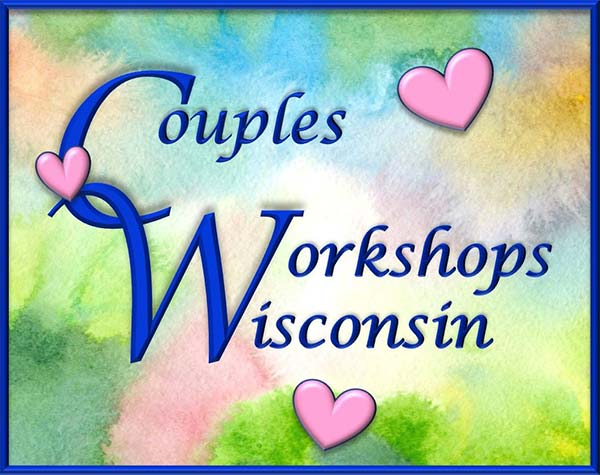All couples, including couples who describe their relationship as “very happy,” experience conflict. It is impossible to live with the same partner day after day, week after week, month after month and year after year, without (periodically) having thoughts of wanting to kill them. Other than attorneys (who get paid to argue), most people don’t enjoy conflict. Some couples avoid conflict at all costs; they will put up with intolerable situations in the service of “not rocking the boat.” Other couples seem to be perpetually angry with one another — they fight constantly; obviously, neither extreme is healthy, and neither extreme serves couples well. Successful couples “fight fair.” Even during conflict, there are five positives to each negative behavior or action. They communicate respectfully and talk about what they need. Their partner’s behavior is the focus rather than implying that the problem behavior represents a character flaw in their partner’s personality. Successful couples (sometimes) manage to assess their sense of humor, even during conflict.
Through conflict, we better understand our partner’s inner world. We become acquainted with the ways our partners think, what is important to them, and how and why they feel the way they do. People become angry when their sense of fairness and self-worth is questioned, or respect is put into jeopardy. Anger, sadness, hurt and disappointment are feelings that arise when something needs to be changed in our world. We are afraid that we are not going to get something that we think we need, or we are afraid that we are going to lose something that we have, and want to keep. Feelings give us information about our values, hopes, dreams and the legacies we hope to leave behind. Emotions teach us about ourselves and what makes each of us tick. When we share our emotions and thoughts with our partners, we include them in our journeys of self-discovery. When our partners share with us, what is going on inside them, we develop emotional intimacy and we get to know one another on a much deeper, richer level.
Constructive conflict can be divided into three parts: the conflict portion, repairing the relationship and processing (how well you navigated) the conflict discussion. Using gentle startups, avoiding the Four Horsemen of the Apocalypse, active listening, respecting that you both have your subjective realities (equally true and valid for you), asking open-ended questions and using compromise tools (Compromise Ovals) are all methods designed to help conflict stay as positive as possible. These subjects have all been topics of my previous articles and are available on the Nature’s Pathways website; if you have missed one of the articles, or want to review, you will find the site user-friendly. Examining how well the conflict discussion was handled, and finding ways of making the discussion more productive the next time, is best handled with the technique described in my March article, “There is no ‘God Camera.’” Let’s talk now about making repairs after conflict occurs.
When driving a vehicle, sometimes you run off the road and notice right away; it’s not a big deal, a small correction is all that is required. If you run off the road and don’t notice the problem quickly, you may go into a ditch, spin out or roll over; you may hit another vehicle and hurt yourself or someone else. If you’re driving impaired, or fall asleep at the wheel, you may not notice the problem at all. You might go through a ditch and over a cliff; there is no correcting that mistake. Repairing your relationship works the very same way. The sooner you see a problem, the easier it is to make a repair. The longer the conflict continues, the more damage you do to one another and the more difficult the repair will be. Eventually, the two of you may reach a point where the damage you have done to each other, and to your relationship, is almost impossible to repair.
When you first notice that there is a problem, if your partner sounds critical and you feel defensive, talk about how you are feeling. Don’t react defensively, say, “I am feeling defensive, could you rephrase that (say that more gently, say that another way) please?” When something comes out of your mouth that you realize was truly stupid, own it, and claim it right away. Saying, “I’m sorry, I really blew that one; can we start over?” may get your relationship “car” back on the road. These quick, low-level repairs for low-level conflict, are easiest to make and are most likely to create an accepting attitude in your partner.
When you realize that you are both trying to explain why you’re both “right,” or arguing about what “really happened,” you are headed toward gridlock. To avoid the emotional quicksand, you need to compromise — getting your partner to start saying “yes” is the goal. How do you swing that? Start saying “yes” to any part of your partner’s argument with which you can agree. Saying something like, “You’re starting to convince me” or “I agree with part of what you’re saying” may be just the correction you need to get back on the road again. If you feel your heart rate start to speed up, and your breathing get shallow and rapid, it’s time to ask for a break. It takes 20 minutes to get the stress hormones out of your bloodstream once they are dumped in, so thirty minutes is a good amount of time for a break. Telling your partner what you appreciate about them, owning your part of the conflict (selfish, stubborn, impatient, etc.), with or without a timeout, is a deposit in your emotional bank account. Think of it as insurance, in case you “wreck your vehicle.”
